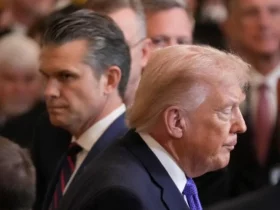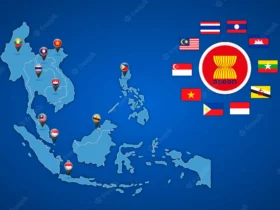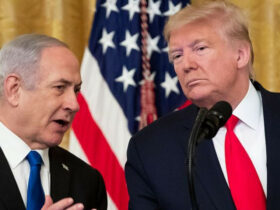Most recently, the EU executive proposed on September 18th suspending €7.5 billion in EU funding for Budapest, or about a third of the total amount of cohesion funds that Hungary is allocated until 2027.
We made an extensive interview with Ferenc Almassy, Editor-in-Chief of Visegrad Post, on the causes of the dispute and the accusations against Victor Orban and Fidezs of “far right”, “authoritarian” and “anti-democratic”. We asked Ferenc Almassy about the characteristics of the right-wing parties on the rise across Europe, specifically Giorgia Meloni who won the election in Italy, what they have in common and how they view the EU.
We also touched upon Hungary’s energy policy and how Hungary responds to the sanctions against Russia.
Prime Minister Victor Orban and Fidesz are called by some as “far-right”, “authoritarian” and “anti-democratic”. It is even more accurate to say that being accused. Most recently, The European Union declared that Hungary could be deprived of 7.5 billion euros from the European Union budget because of problems about “rule of law”. What are the reasons for the dispute between the European Union and Hungary?
‘Blackmail using European funds’
It is a long story. You said two things and they are linked. Those who call Victor Orban’s government authoritarian, anti-democratic and so on are the ones blackmail with European funds. Mainly progressives and liberals run EU institutions. These people are opposing the ideology and policies of Victor Orban. The accusation of “anti-democratic” is not accurate. In Hungary we had elections in this April and there were international observers and they found absolutely no problem. Elections in Hungary are 100% regular, so it is democratic. We may not enjoy the results, but the democratic process in Hungary is unquestionable.
Equating the democratic with the liberal
The problem is that for many people in the West, when talk about democracy, they actually mean liberalism. They are shifting the sense of the word democracy. So for them, democratic no longer means that people vote freely. This is a very important issue to understand. They use the vocabulary to influence people.
The federalization of the EU and the opponents
Victor Orban and his allies or partners like the Law and Justice Party (PiS) in Poland and now Giorgia Meloni in Italy are against the federalization of the EU. We have seen it in the past years, and it became much more obvious during the Covid pandemic period, that the people who are leading the EU are pushing a federalist agenda which is contrary to the original idea of EU -the cooperation of sovereign nations-. And for Hungary this is something unacceptable. If the German Chancellor Scholz’s proposal to suppress the vital right at the EU Council is accepted, that will be a catastrophe and will change the essence of what the EU is about. We have no idea what might happen if this changes because some countries would have to leave the EU even if they do not want to do so.
The Sargentini Report
The issue of “rule of law” started in 2018 with the Sargentini Report. With my team, we have checked the report. It includes 100-110 articles. There are about 10 articles that include questions and deserve investigations and answers. The rest is purely ideological. This report has been voted by the EU Parliament, and since then all the attacks against Hungary are based on a mixture of real, legitimate questions about how the funds are used (to which the EU has right to do) and accusations solely ideological-driven. This makes it quite impossible for Hungarian government to answer properly. This report is a mixture of facts and opinions, but EU presents the whole as facts.
So I say that there is real blackmail used to pressure Hungary in a political way.
The rise of right-wing movements across Europe and the increase in their vote share is one of the most heated topics. What are the reasons for the rise of these movements? More specifically; may you evaluate the relative weight of following factors?
* The policies of the Brussels oligarchy against the sovereignty of nations and states and the vast majority of the people;
* Defending the local and conservative against the center and globalization;
* Concern about the increasing number of migrants;
* Erosion of cultural values.
In general, maybe it can be asked like this: To what extent are these movements economically and class-based, and to what extent are they culturally based and reacting?
The ideology of Brussels
All you mention are interlinked. They are all connected to each other. The ideology that drives the unelected bureaucrats of Brussels, as we mentioned in the previous question, is a kind of federalism that wishes to make Europe a kind of “United States of Europe”. That has huge consequences about migration and local socio-economical problems. Because there are big differences from one country to another, from one region to another in Europe. But if you pursue a policy of homogenisation of different economies and societies at the European level, you are obliged to face certain problems stemming from the different conditions of different states -even at national level, because in some regions are more countryside and have more workers and in another there are a lot of old people and so on. Many people feel, especially in the Central European countries, which joined the EU later than the Western countries did, that the promises that once made by the EU are not met. For example the EU promised the same level of quality of life all over Europe. But today many people can see that these promises are not real and they are paying the price for Western policies that are not in their own interest. So I think in the Central Europe this is one of the main reasons for their opposition to Brussel oligarchy.
For Western countries like Italy, the issue is a little bit different. The quality of life has declined since Italy joined the EU. Italy is also a very ageing society with a lot of retired people. Obviously the mass migration is not working as a solution. It is bringing more problems than solutions. Of course some migrants can come and start to work, so they can create some sources for the retirees, but more problem occurs with the mass migration. Each country may have some different reasons, but the mutual point is that all Western countries have the problem of mass migration and ageing society.
The death of the ‘European dream’
In Central Europe the “European dream” is over and people are now facing problems. In addition to these, there are other issues, that you also mentioned, such as the erosion of values. These people have gone through many decades of liberalism and saw what has happened in the Western societies, now they have a tendency to more conservative values, being scared of what they saw in the West. Not only right-wing politicians, the others also lost their trust in the West. What happened with the kit issue in pandemic was a triggering experience.
Prime Minister Victor Orban has close and personal relations with Italy’s new Prime Minister Giorgia Meloni. Orban was among the first to congratulate her on the electoral success. What do the two leaders have in common?
Orban and Meloni
They both represent a reaction to social and cultural changes that are unwelcome by their voters. That is one thing.
The second is the economical aspect. They are both in favor of kind of a moderate liberal economy, which refers to that they are not anti-state, but they also want to give more freedom to entrepreneurs and create a stronger national economy.
One of the main reasons for the Meloni’s success is, as studies also show, many people cannot bear the tax system of Italy anymore. The tax system was one of the first things that Orban changed when he came to power. And this change was one of the things that made it possible for him to be reelected.
Orban’s goal: Patriotic national middle class
What kind of changes did Orban do?
Orban made huge changes about the tax system, even the administration and the name of the tax institution changed. He introduced the flat tax and new kind of taxation for small companies and so on.
Victor Orban is really focusing on the emerging middle class, which is something new in certain post-communist countries. Because during communism these countries had no middle class, instead basically lower and upper working classes and little ‘apparatchik’ class. Orban believes in a strong national middle class that is patriotic and possess its own capital which can be invested within the country and make the national economy work properly and on its own power. That is one of the goals of Orban. The changes in the tax system are designed to protect middle class.
One of the keys of this policy was the low cost of energy, which is now in a very bad situation because Hungary too has to pay the price for the European policy. Regardless of the fact that Hungary tries to do everything on its own to acquire cheap Russian energy, the whole thing is going on within the EU. The EU’s policy has an impact on the energy prices in Hungary because Hungary is legally part of the European Energy Market, which means who decides the price in Hungary is not Hungary itself, but the European Market. One of Orban’s main targets is to keep energy price low, Orban’s whole system is built on that.
Sanctions against Russia
And this is another factor in the dispute between the EU and Hungary for the EU being determined to impose sanctions against Russia. Is it correct?
Yes. But that does not depend on Orban only. When Orban came to power in 2010, it was already the case, and did not change since then, that Hungary relies on Russia for gas, oil and even uranium. That is a simple fact. Hungary has no access to sea and we do not have an international leverage and infrastructure to have another source. Hungary imports gas almost exclusively from Russia. Maybe it is not a great situation, but it was working and was cheap. If there had not been all these problems about Ukraine, everything would have gone fine for Hungary. That was Hungary’s plan.
This is why now Orban is very actively working on cooperation with the Turkic State Organization. Especially Türkiye, Azerbaijan and Kazakhstan. Orban wants a direct cooperation with these countries. This point is very important to understand. Orban does not want cooperation mediated by the EU. Orban’s main goal in this cooperation is to have access to oil and gas. This is the Plan-B of Hungary.

















Leave a Reply